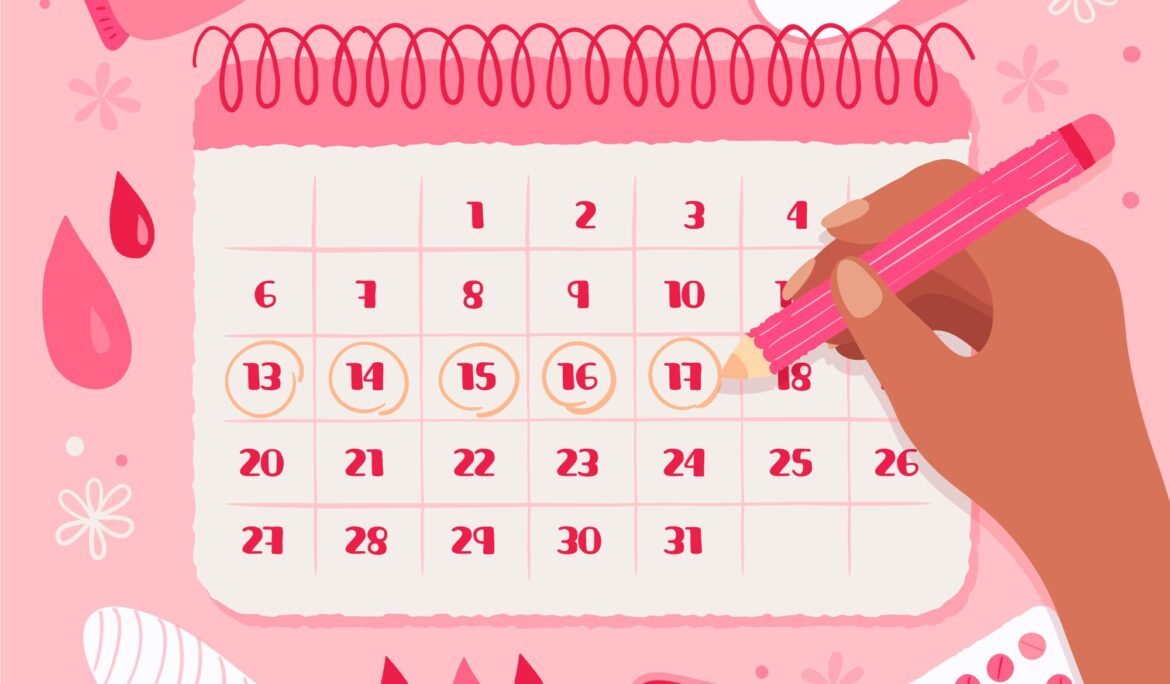Can You Get Pregnant While on Your Period?


It’s less likely, but possible if sperm survives long enough to meet an egg, especially if ovulation occurs shortly after your period.
A common question for many people is whether it’s possible to conceive during menstruation. While chances are generally lower, conception during your period is still possible under certain conditions. In this article, we’ll explore how the menstrual cycle works, factors that may increase pregnancy risk, and why conception during menstruation can happen.
Understanding the Menstrual Cycle
The menstrual cycle is a series of hormonal changes that prepare a woman’s body for pregnancy. Typically, a cycle lasts between 28-32 days, though it can vary. Here’s a basic breakdown of the cycle phases:
- Menstrual Phase (Days 1-5): The shedding of the uterine lining, marking the start of a new cycle.
- Follicular Phase (Days 1-13): The body releases hormones to stimulate egg development. The uterine lining thickens in preparation for possible pregnancy.
- Ovulation (Around Day 14): An egg is released from the ovary and is viable for fertilization for up to 24 hours.
- Luteal Phase (Days 15-28): If the egg is not fertilized, hormone levels decrease, and the cycle restarts with menstruation.
How Conception Can Occur During Your Period
While the days during menstruation are generally less fertile, pregnancy can still occur, especially in cases where cycles are irregular or ovulation happens earlier than usual. Here’s how it’s possible:
- Sperm Survival: Sperm can survive in the female reproductive system for up to five days. If you have intercourse toward the end of your period and ovulate shortly after, sperm may still be viable and able to fertilize an egg.
- Shorter Menstrual Cycles: Women with shorter cycles (around 21-24 days) may ovulate soon after their period ends, increasing the chances that sperm from period intercourse could meet a viable egg.
- Early Ovulation: Some women may ovulate as early as Day 10, especially if they have irregular cycles. In such cases, the chance of conception from period intercourse rises.
Factors That Increase Pregnancy Risk During Menstruation
Certain factors may elevate the likelihood of conceiving during your period, including:
- Irregular Cycles: Women with irregular menstrual cycles are more likely to ovulate unpredictably, which can increase the risk of conception during menstruation.
- Longer Menstrual Phases: If your period lasts more than 5 days, and you ovulate shortly after, the likelihood of sperm surviving until ovulation increases.
- Hormonal Fluctuations: Some women experience hormonal fluctuations that can trigger early ovulation, increasing the risk of pregnancy during or right after menstruation.
How to Reduce Pregnancy Risk During Your Period
If you’re not trying to conceive, practicing safe sex during your period is still important, as conception is possible, albeit less likely. Here are some steps to reduce the risk:
- Use Protection: Birth control methods, such as condoms or hormonal contraception, effectively reduce pregnancy risk, even during menstruation.
- Track Your Cycle: By closely tracking your cycle with an app or ovulation predictor kits, you can better understand your most and least fertile days.
- Consider Long-Term Birth Control: For those looking to avoid pregnancy consistently, consider a long-term birth control method like an IUD or implant, which provides reliable contraception over extended periods.
Conclusion
While the chances of conceiving during your period are generally low, it is still possible, especially in cases of irregular or shorter menstrual cycles. Factors like sperm survival and early ovulation play a role in the possibility of conception during menstruation. Practicing safe sex during your period and tracking your cycle can help manage pregnancy risks according to your reproductive goals.
Contact Us if you have more questions about conception, fertility, or reproductive health. We’re here to provide accurate information and support.
FAQs
-
Is it likely to get pregnant during your period?
- It’s less likely, but possible if sperm survives long enough to meet an egg, especially if ovulation occurs shortly after your period.
-
How long can sperm survive inside the body?
- Sperm can live up to five days in the female reproductive system, which can increase the chances of conception if ovulation occurs soon after menstruation.
-
Does having a shorter cycle increase the risk of pregnancy during your period?
- Yes, shorter cycles can lead to earlier ovulation, making conception from period intercourse more likely.
-
Can ovulation happen during menstruation?
- It’s uncommon but possible for women with very short cycles or hormonal fluctuations to ovulate early, even close to or during menstruation.
-
What’s the best way to prevent pregnancy during your period?
- Using reliable contraception, like condoms or hormonal birth control, is the most effective way to prevent pregnancy at any point in your cycle.



